
CSEE Journal of
Power & Energy Systems
ISSN 2096-0042 CN 10-1328/TM


ISSN 2096-0042 CN 10-1328/TM

2022-11-17
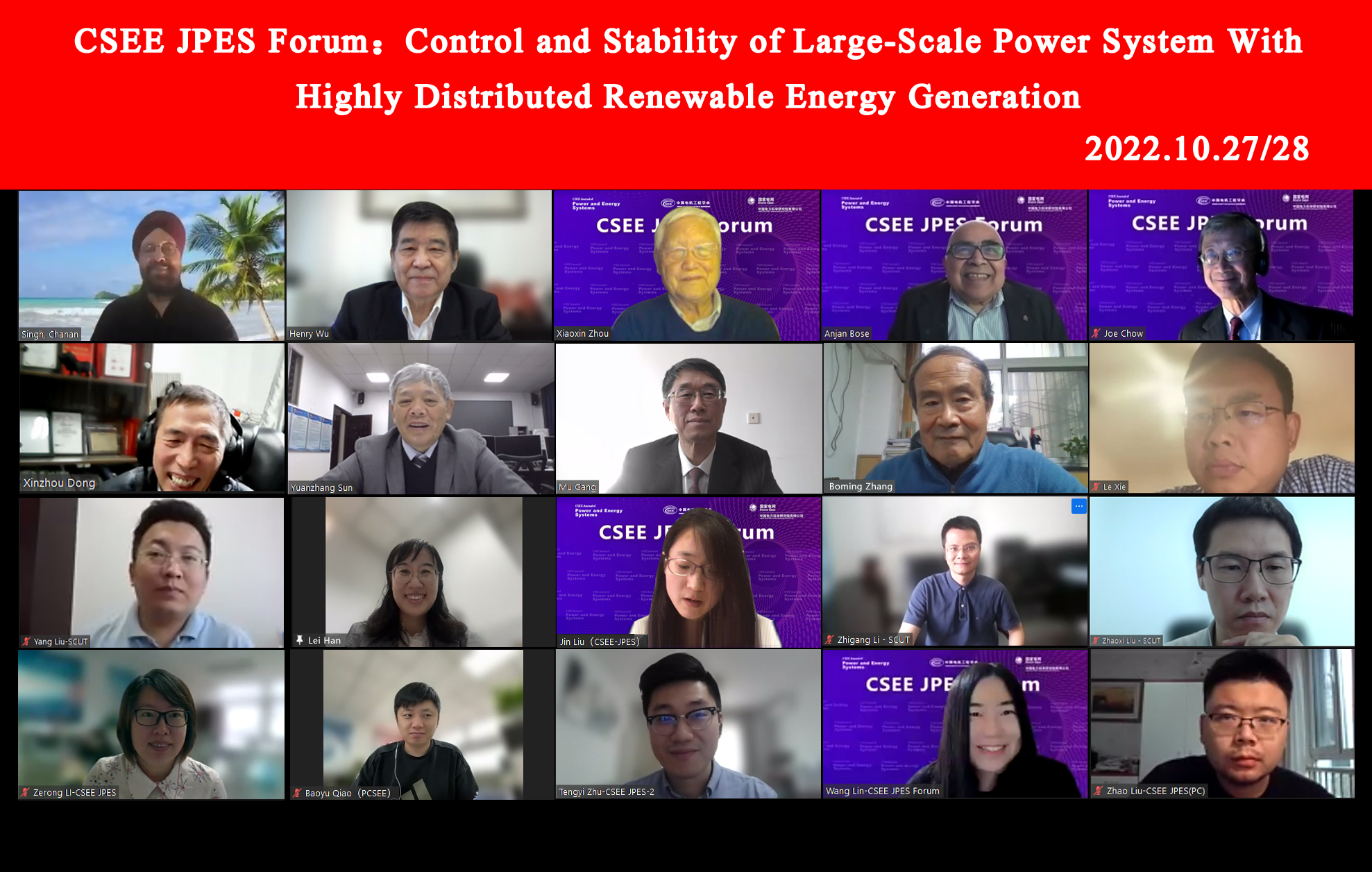
On October 28th, 2022, the CSEE JPES forum on Control and Stability of Large-Scale Power System With Highly Distributed Renewable Energy Generation was held online via Zoom meeting. The forum was hosted by Prof. Qing-Hua Wu, a Distinguished Professor, the Director of Energy Research Institute of South China University of Technology, and the Associate Editor-in-Chief of CSEE JPES; Prof. Anjan Bose from Washington State University, who is a Regents Professor and the Distinguished Professor of Electric Power Engineering and a Member of the US National Academy of Engineering; Prof. Chanan Singh from Texas A&M University, who is a University Distinguished Professor in Electrical and Computer Engineering and a Member of the US National Academy of Engineering; Prof. Joe H. Chow from Rensselaer Polytechnic Institute, who is Institute Professor of Electrical, Computer, and Systems Engineering and a Member of the US National Academy of Engineering; Prof. Gang Mu from Northeast Electric Power University; Prof. Yuanzhang Sun from Wuhan University, and Prof. Qing-Hua Wu were invited to give keynote speeches. The forum attracted more than 11,000 experts and scholars from power enterprises, universities and research institutes to watch the live broadcast online and participate in the exchange.
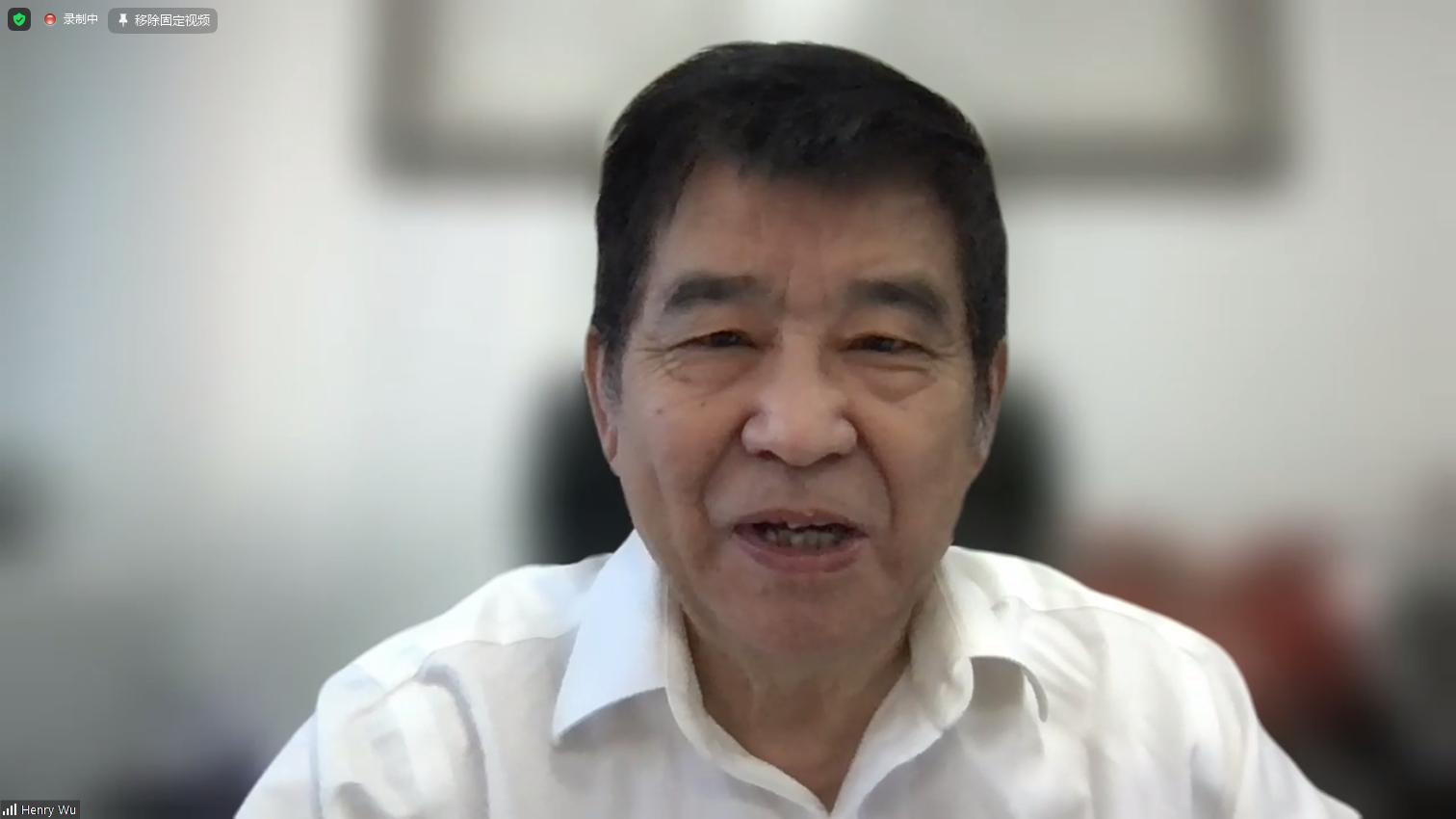
Opening Ceremony by Prof. Qing-Hua Wu
On behalf of CSEE JPES, Prof. Qing-Hua Wu introduced the six experts who were invited to give keynote speeches and extended a warm welcome and heartfelt thanks to the academicians, experts and guests for attending this forum.
Six well-known experts at home and abroad were invited to give keynote speeches at the forum, and the participating experts and scholars had extensive discussions on various related academic topics.

Keynote Speech by Prof. Anjan Bose
Prof. Anjan Bose delivered a keynote speech on “Grid Control Challenges: Reliability and Resiliency”. He pointed out that large generators on the transmission system is being replaced by lots of small generators. There are generators on the distribution feeders now. And we should measure more variables on the distribution feeders. The report introduced the control challenges in automatic control, manual control and protection and fast controls due to the evolution of grid architecture. The added challenge is load growth. In many countries, electric load could quadruple in two decades. Operating much larger grids will require more sophisticated communication, computation, control than available today. The present control architecture of EMS, DMS, markets, protection, etc., will have to be redesigned to match the emerging grid architecture. Furthermore, he pointed out that the difference between reliability and resiliency. The whole idea of reliability is to avoid outages. The whole idea of a resiliency is to make sure that once you have outages, you're going to restore it fast.

Keynote Speech by Prof. Chanan Singh
Prof. Chanan Singh presented a speech on “Grid Transition Towards Carbon-Neutral Electricity and Mobility”. This speech is based on the paper: “Today carbon-neutral electricity and mobility: Is the grid infrastructure ready?”. Prof. Chanan Singh pointed out that the critical path towards carbon neutrality is decarbonizing electricity generation and electrifying transportation. Then Prof. Chanan Singh introduced a set of research questions, for example, “What will the pricing construct be for uncertainty and flexibility in carbon-neutral electricity systems?”. To sum up, this report argues that the electric grid and electrification would play a crucial role in carbon neutral transition. A whole set of open questions remain to be addressed for the grid transformation: reliability, markets, architecture. An exciting era for the next-generation power grid leaders to make a global impact in the energy/climate community.
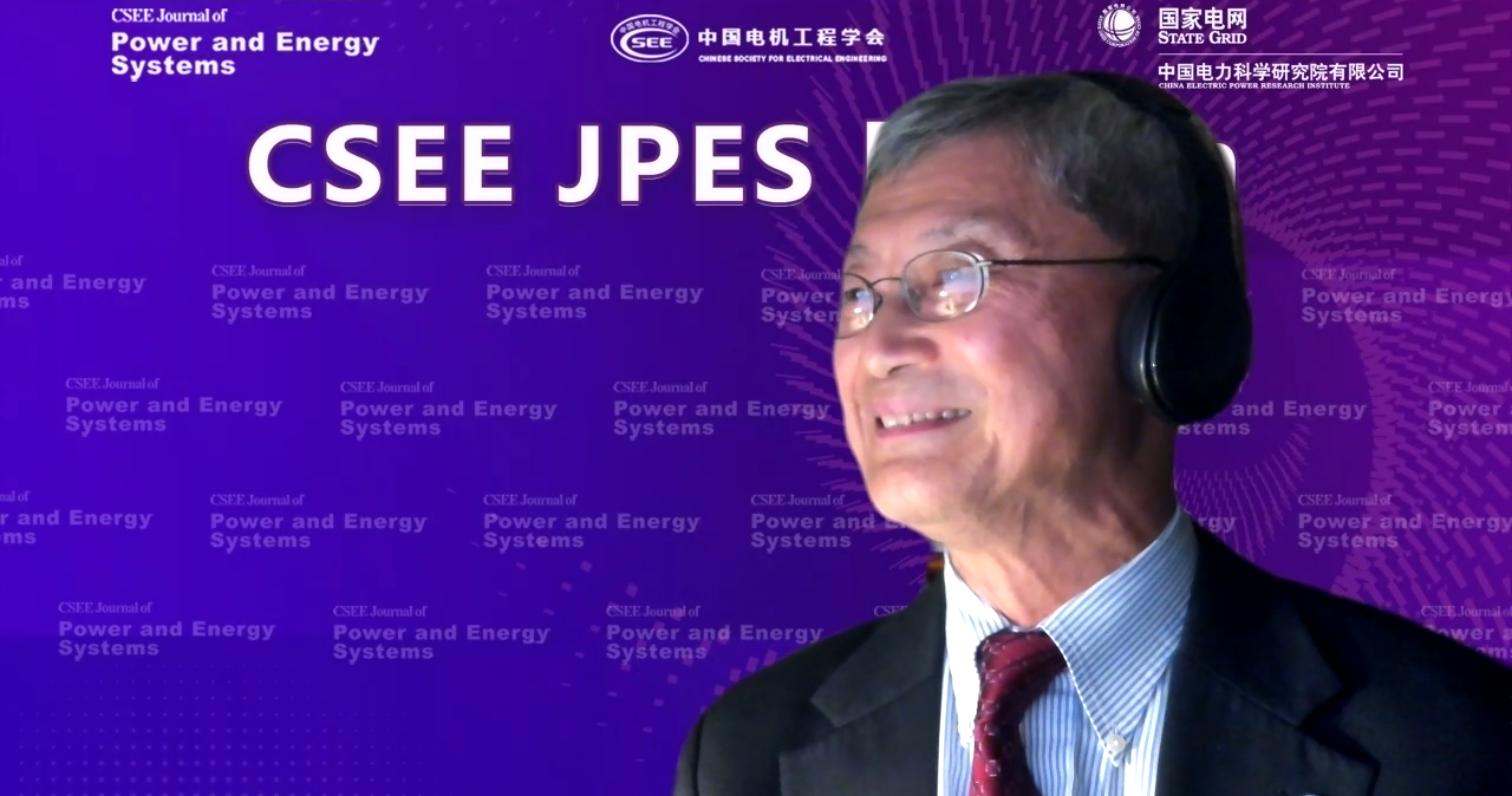
Keynote Speech by Prof. Joe H.Chow
Prof. Joe H. Chow delivered a speech on “Enabling Inverter-Based Resource Stability Control in Power Systems with High Converter Penetration”. He introduced that conventional AC power system relies on generator inertias and reactive power support to allow time for relays and controls to operate reliably. In future grid with large penetration of inverter-based resources, converters need to overcome low inertias and weak grid issues. However, there is good news, as inverters can provide fast active power and reactive power control. His presentation showed some possible way to use active power control for enhancing power system stability. For example, using active power control for transient stability, wind turbine-generator frequency control and disturbance propagation in One-Dimensional Radial Systems. The future research directions include field demonstration of benefits of advanced inverter stability control, renewable siting and transmission planning accounting for inverter transient stability control, coordination of smaller renewable resources to achieve active power control design on bulk power system and reliable operation of protection systems in high inverter penetration systems.
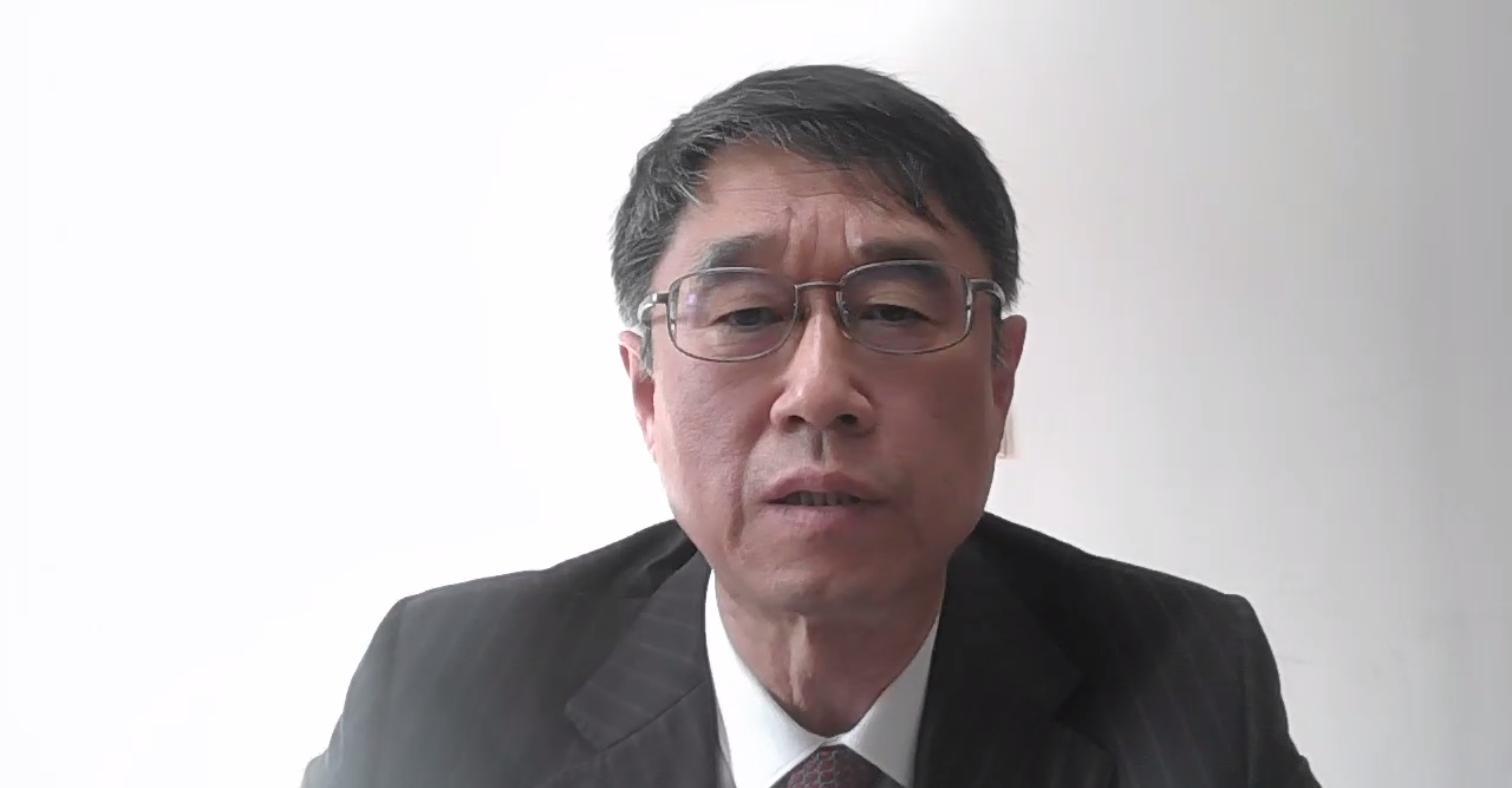
Keynote Speech by Prof. Gang Mu
Prof. Gang Mu delivered a speech on “Challenges of Stability Studies for the Power Systems with High Penetration of Renewable Energy Sources”. He introduced the definitions and evolution of power system stability and the changes in the stability-related key factors caused by high penetration of renewable energy sources. He compared the different dynamics of conventional power systems and future power systems with high penetration of renewable energy sources, and came to the conclusion that the convertor is with much weaker voltage support ability than that of the synchronous machine (SM) under the fault, the stable domain of the wind farm (WF) convertor is much smaller than that of the SM, the stable boundaries of WF convertor monotonically decrease with the short circuit (SC) capacities and the stable boundaries of SM also monotonically decease with the SC capacities. Then he pointed out the challenge brought about by huge number of convertors, the challenge of weak tolerance of the convertor and the challenge of large computation cost based on electromagnetic simulation. Finally, from the view point of theoretical innovation, mechanism revealing and computation method, some research topics are suggested to address these severe challenges to stability studies resulted from the high penetration of renewable energy sources.

Keynote Speech by Prof. Yuanzhang Sun
Prof. Yuanzhang Sun delivered a speech on “Control Method of the Load Damping Factor for Primary Frequency Regulation of Power Systems with High-Proportion Renewable Generation”. The report focused on the load damping constant enhancement by voltage/frequency feedback controller. He introduced the existing technologies for load participating primary frequency regulation, such as direct control of charging loads and large-scale industrial load, demand response with air-conditioning loads and smart lighting systems. Then, he pointed out the impacts of controlled response on primary frequency regulation and the quantified effects of primary frequency regulation enhancement. In addition, according to frequency regulation capability calculation formula of load, taking the load of China power grids as an example, the report came to a conclusion that the frequency regulation capability with load control is higher than that without load control. Prof. Yuanzhang Sun believed that load control will have unprecedented potential in future power systems with high penetration of renewable energy generations.
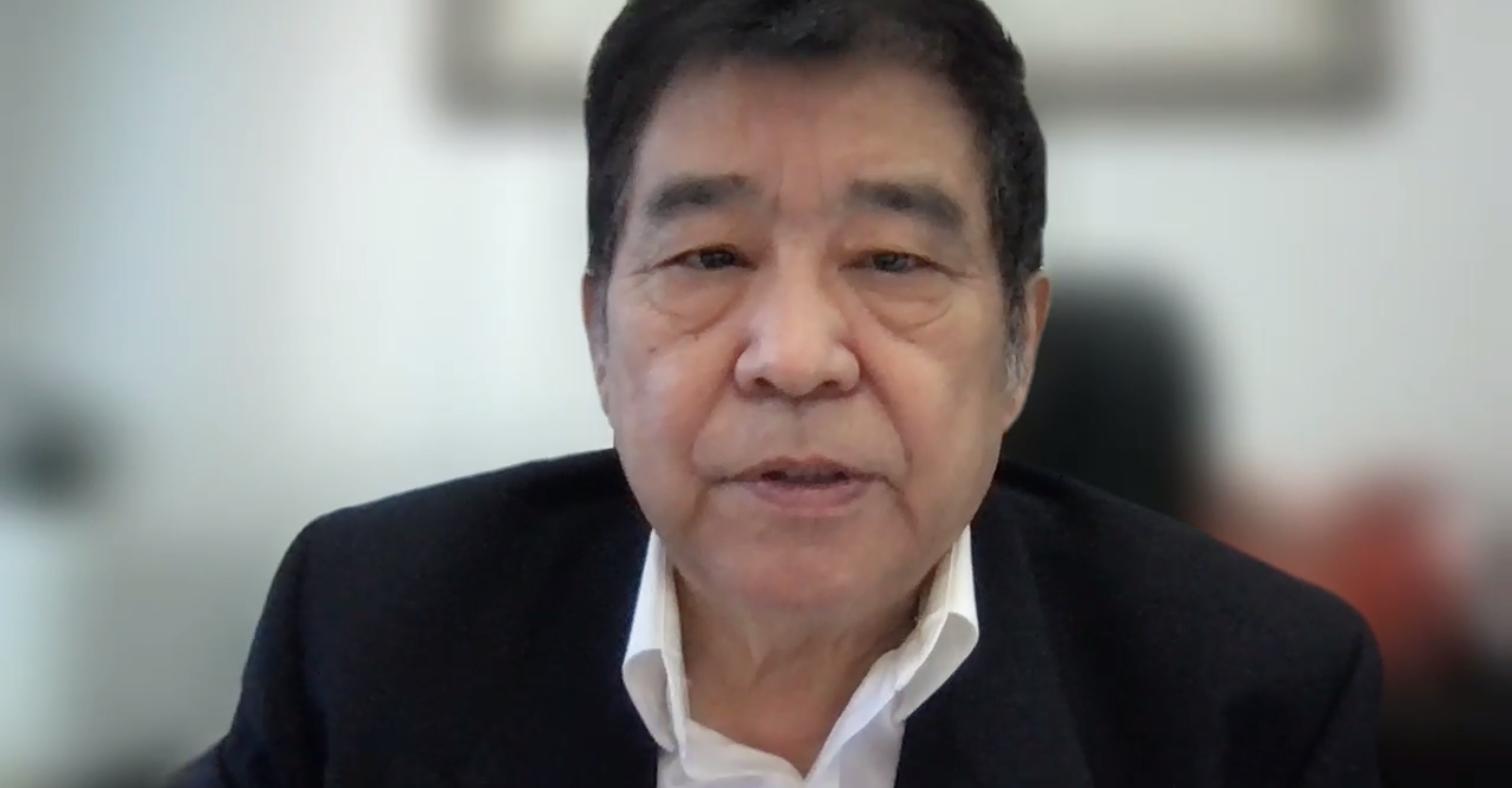
Keynote Speech by Prof. Qing-Hua Wu
Prof. Qing-Hua Wu delivered a speech on “Transient Stability Enhancement of Large-Scale Power Systems Using Maximum Energy Balance Control”. He pointed that conventional transient stability controllers highly rely on the accurate system model, accurate parameters, as well as multiple measurements, which are quite difficult to be obtained in practice. The key factor impacting the transient stability level is the rebalance between power generation and power consumption during the post-fault stage. Wide-area coordinated maximum energy controllers are in great need at present. Prof. Wu introduced two aspects of work of his research team, namely, nonlinear adaptive control based on state and perturbation observer, and maximum energy balance control based on bang-bang funnel control. These two methods have been applied in the control of synchronous generators, wind power generators, power electronics converters, modular multi-level converter-based HVDC, battery energy storage devices, and the proposed controllers are able to enhance the rotor angle, frequency, as well as voltage stability of power systems. Prof. Wu concluded that the nonlinear adaptive controllers based on state and perturbation observer do not need any accurate system model nor accurate parameters. Only the output variables of system are needed, and they do not ignore any nonlinearities, parameter uncertainties, and external disturbances. Maximum energy balance control has accelerated the rebalance between power generation and power consumption, and bang-bang controllers’ function in a distributed coordinated manner. Prof. Wu said that in the future more maximum energy balance controllers should be developed, especially those with energy storage capabilities. This may be a promising way to construct the next-generation stability control framework of power systems.
In the panel discussion, the experts fully exchanged views on the control and stability of large-scale power system with highly distributed renewable energy generation. Some of the questions raised by the audience and answers from the six experts are as follows.
Dr. Zhigang Li from South China University of Technology asked “Except for the control methods, how do you think the architecture of energy management systems changes? Would there be new types of controls for the emerging grid except for AGC/AVC/protection control? What do you think the role of AI plays in the future energy management system?”
Prof. Anjan Bose answered “To be able to do any control which is coordinated between the distributed generation and the distribution control centers, the communication between the Control Center architecture will have to change in both directions, with measurement information going to the control centers and control information control signals going out. In addition, he thought that with such kind of hierarchical control and the distributed control, we are going to need much better controllers. AI is the tool of our toolbox.”
Dr. Jiehui Zheng from South China University of Technology asked “The research on reliability analysis and assessment has a long history. Do you think new techniques or paradigms of reliability analysis are needed for power systems with high RES in the carbon-neutral future?”
Prof. Chanan Singh answered “You know that when you have the new sources which are time being, and then you have flexible demand. So we may have to rethink the whole idea about reliability. And machine learning might be quite helpful for large-scale power system with highly distributed renewable energy generation.”
Dr. Jiehui Zheng from South China University of Technology asked “Cost is needed for the improvement or upgrade of power systems to accommodate the RES and other new features towards the carbon-neutral future. Who do you think should pay the price and boost such improvement and upgrade of the grids for the carbon-neutral objective?”
Prof. Chanan Singh answered “ The cost of carbon-neutral will change from country to country. For example, in the US, for the electric vehicles, more funding for the research and infrastructure. Part of the funding will come from the Government, but in majority ultimately this will have to be paid by the suppliers, and then consumers will have to pay all these costs.”
Jianzhong Gui from University of Idaho asked “How can we enhance the stability of the inverter-based system? Could we focus on the inverter controller modeling or the control schemes coordinating with other resources, like the inertia of synchronous machine or the battery storage system?”
Prof. Joe Chow answered “Conventional controls are based on inertia and a lot of the things that we see is based on inertia because synchronous machine with inertia, it doesn't go unstable instantaneously. But inverters we have to do it on a fastest time scale.”
Prof. Le Xie from Texas A&M University asked “How you look upon evolution of communication systems in the control architecture of power systems? ”
Prof. Yuanzhang Sun introduced their work on the usage of communication systems in the control of frequency, voltage and harmonics of power systems.
In this forum, the opinions on the control and stability of large-scale power system with highly distributed renewable energy generation were analyzed. The experts also shared experiences that enlighten improving reliability and resiliency of the future power grid.
The CSEE JPES which has always been focusing on reporting cutting edge ideas, technologies, method and practice related to power and energy systems, and is designed to showcase the latest technological achievements. The latest impact factor of CSEE JPES is 6.014, ranked in Q1 section in JCR“EEE” discipline. So far, the CSEE JPES Forum has organized 10 forums in Hong Kong, China, West Ross, Sweden and Beijing, China, etc. The topics covered next-generation power systems, renewable energy, electric power market, and hydrogen, which have received wide attention from the industry, actively promoted the scientific and technological innovation and development in the fields of electricity and energy, and contributed to the exchange and publication of research results in the field of energy.
 The articles published in this journal will focus on advanced concepts, technologies, methodologies and practices associated with all aspects concerning power and energy systems...
The articles published in this journal will focus on advanced concepts, technologies, methodologies and practices associated with all aspects concerning power and energy systems...
more...
 Welcome to follow our Wechat Official Account (CSEEJPES2015)
Welcome to follow our Wechat Official Account (CSEEJPES2015)